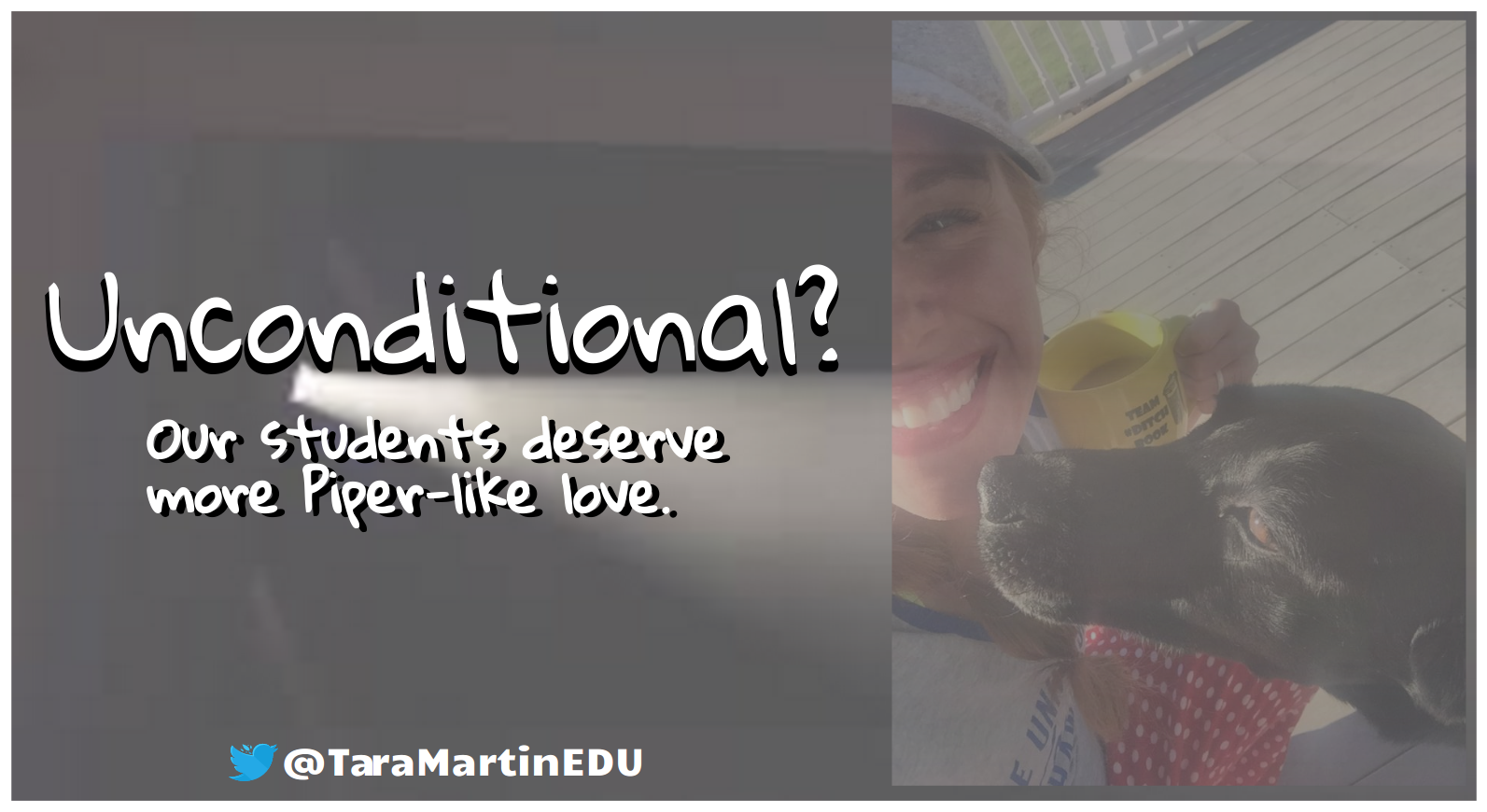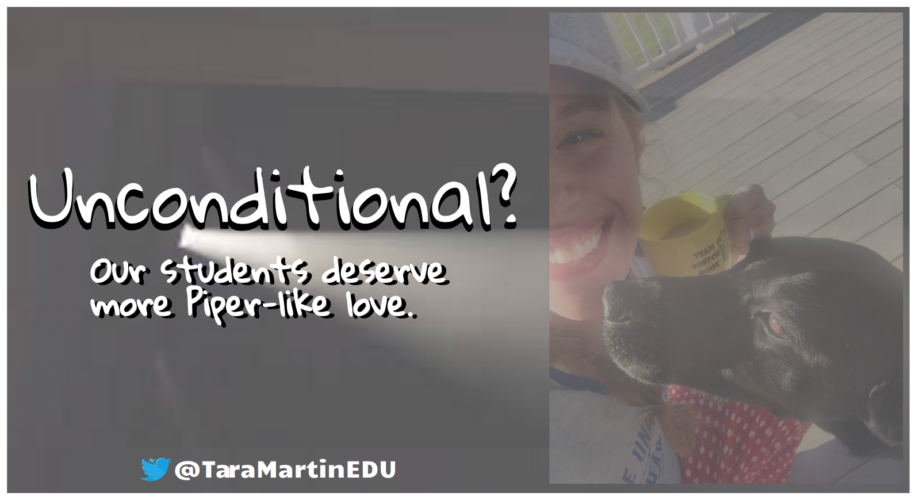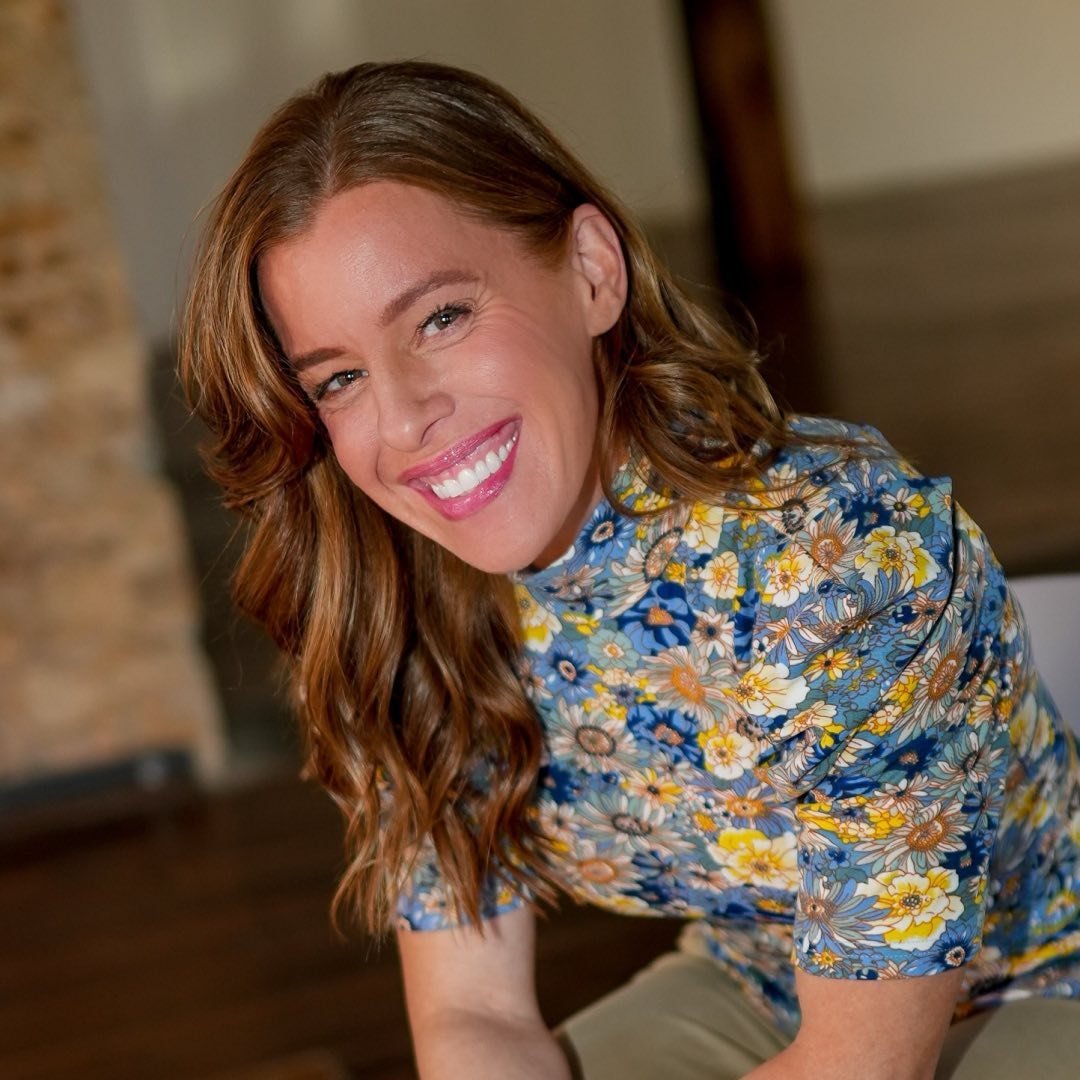I’m fairly certain we have all heard the phrase “unconditional love,” but I’ve often wondered–is that even a thing? Do we unconditionally love (care for, show kindness, respect) those we serve? Really? Without conditions?
Being a mom, I can honestly say I love my son, Kaleb, without conditions. From the moment I saw his little face, I knew I felt “love” on a whole new level. Never had I ever felt such a feeling. Now, Kaleb is sixteen years old, and oh the obstacles we navigate during these teen years, yet my love for him is as strong as it ever was. I love that kid JUST the way he is. His REAL self (the good, not so good, and the mischievousness) is always good enough for me. Unconditional.
Unconditional?
I’ve heard many educators say, “We love our students as our own kids.” Do we mean it? Do we allow our students to make mistakes and support them through them? Or, do we place conditions on them? If they are well-behaved, they are loved. Or, if they are ill-behaved and need a little extra attention, they are loved. In either of these cases, what about the quiet student that is hiding in the shadows? Do we place conditions on those we serve for them to receive love, kindness, and respect?
I often think, as an adult, we place conditions on students that we would never tolerate as an adult. It melts me. This notion of “we are teaching them responsibility” is ridiculous. I mean, if a child needs a pencil, do we turn them away for being ill-prepared for the day? Have you ever borrowed a pen at work, at the bank, or the grocery store? How many times have you charged your laptop or phone at work, because it was losing a charge? Yet, if a student needs to plug in, I’ve seen teachers make them stand in the back of the room in shame (instead of sitting) because they were “irresponsible.” Or, my pet peeve–what about educators who place student scores for the whole class to see to motivate others to perform? This is absurd. How would we feel if our evaluations (or walk-throughs) were hung up in the teacher’s lounge for all of our colleagues to see? If we wouldn’t tolerate these conditions as an adult, they should not be placed on a student.
Students are humans. They struggle just like we do. They have insecurities, too. They make mistakes and grow through them–just like us. So, if we really want to prepare them for the future, and they need a pencil, GIVE them a dang pencil! (Thanks, Principal El.) If they need to plug in their device and there is an open outlet, let them plugin. Do they need a little break because they had a rough night, give them a break. Let’s help all of our students become successful–unconditionally.
I know it is cliché, but let’s be intentional and follow the golden rule when serving our students, “Treat others as we would want to be treated.”
Lessons Learned From Piper
Last night we had a tragedy in our family; our sweet, black lab of ten years, breathed her last breath. Talk about unconditional. I feel confident when I say that dog loved me unconditionally. Every morning she greeted me with lots of kisses. Even when she scattered our trash out across our eight-acre plot of land, and I fussed at her, she was right there brushing up against my leg in apologies. Every evening she would greet me with a wagging tail and zeal that I wish I could bottle up and sell. Piper taught me what being loved unconditionally was all about.
In life, I have had many say, “I love you,” but there were ALWAYS strings attached. “If you did this or that differently, that would be better.” Or, my interpretation, “Your REAL self isn’t quite good enough, but if this…or that…it would be.” It’s frustrating to feel successful at some things but to imagine that huge parts of your REAL character need to change to be “accepted” or loved. That’s not how Piper loved our family. Wheather we gave her tons of attention or very little, she treated us the same. Every day was a fresh new beginning with Piper. It did not matter if she was in trouble for being naughty or enjoying an evening run alongside me on our country roads, she desired to be with us. There are so many lessons I have learned from this faithful friend. I’ll not forget how Piper made me feel, and how I need to be more like her in my everyday actions.
To My Fellow Educators
How might we serve our students and “love” them unconditionally? That might seem super hard, but we do it for our own children–why not for the ones we serve? Just like Piper taught me how that type of love felt, you might be that person for some of the students you serve. There are some REAL situations or character traits that our students have little control over; let’s not place conditions upon them.
How might this unconditional act of caring, kindness, love, and support change the trajectory of a student’s life?



